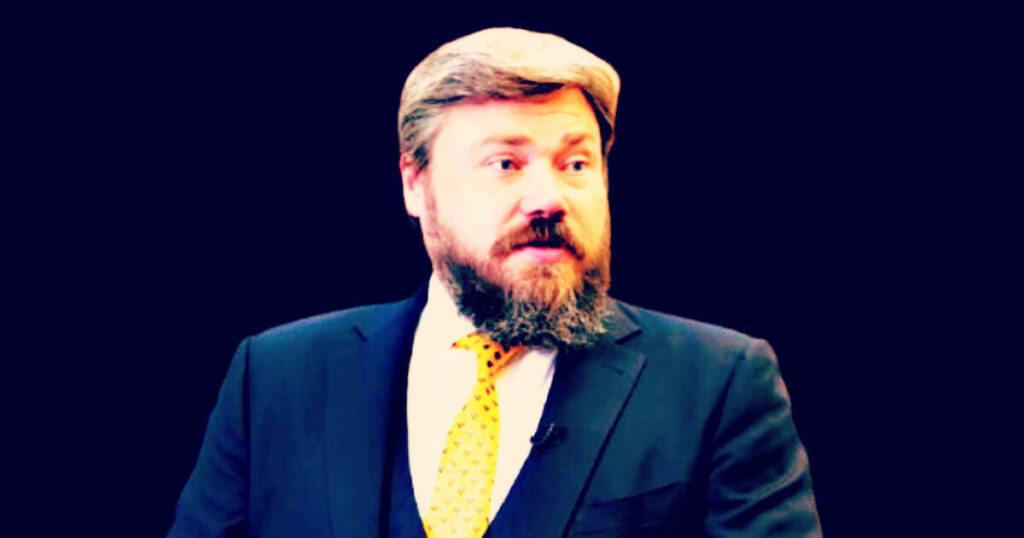The ongoing war in Ukraine has revealed contrasting perspectives within Russian leadership, particularly highlighting the pragmatism of President Vladimir Putin in contrast to more hardline advocates like Dmitri Medvedev. Medvedev, a former president and current deputy chairman of the Security Council, has called for more aggressive strategies in the conflict, showcasing a more maximalist outlook than the often measured approach taken by Putin. While the West tends to focus on Putin as the key figure in the conflict, influential individuals like Konstantin Malofeyev provide insight into the radical ideologies circulating within Russian society. Malofeyev, a sanctioned oligarch with close ties to the Kremlin, represents a faction that demands a radical rethinking of negotiations surrounding the war.
In a recent interview, Malofeyev articulated a skeptical view toward U.S. efforts to mediate peace in the conflict, particularly criticizing Donald Trump’s proposed plan through recently appointed special envoy Keith Kellogg. He anticipated a dismissive response from Moscow, arguing that negotiations should extend beyond Ukraine’s future and encompass broader European and global security concerns. Malofeyev’s position suggests that any genuine attempt to resolve the conflict must include a reconsideration of NATO’s presence in Eastern Europe, as well as recognize Russia’s strategic interests on the global stage.
For these talks to bear fruit, Malofeyev believes that significant concessions are necessary from the U.S., such as retracting support for Ukraine’s military and potentially removing its leader, Volodymyr Zelenskyy. He emphasizes that discussions should focus on the future geopolitical landscape rather than being limited to the conflict itself. This perspective strongly intertwines with fears of escalating tensions and the potential for nuclear confrontation should the U.S. continue its current support for Ukraine. With the West equipping Ukraine with advanced weaponry, the possibility of a tactical nuclear strike becomes a disturbing aspect of Malofeyev’s calculations regarding the war’s trajectory.
Malofeyev’s argument also paints a rather optimistic picture of Russia’s domestic situation amidst the conflict, claiming that the war has rejuvenated its economy. He contends that a resurgence in defense manufacturing has benefited many Russians, bolstering local markets and improving living conditions for significant segments of the population. This viewpoint stands in stark contrast to how the West perceives the effects of sanctions on Russia. Malofeyev insists that the majority of citizens, especially those involved in key industries, are unfazed by these punitive measures and are, in fact, thriving under the current regime and military expansion.
The hardliner’s vision includes a call for a long-term peace deal that extends beyond Ukraine, encompassing broader discussions about world order reforms, especially regarding U.S. foreign policy and its role in global military alliances. He posits that this could be a defining legacy for both Trump and Putin, framing their potential collaboration as a historical convergence of their respective political paths. Malofeyev sees an opportunity for Trump to emerge as a transformative figure in international relations if he is willing to engage deeply on issues far more complex than just the conflict in Ukraine.
Despite Putin’s openness to a ceasefire under specific conditions, which include ceding territories and halting NATO expansions, discussions have largely overlooked the Kremlin’s broader aims regarding Ukraine’s governance and military capabilities. Malofeyev’s views suggest that these aspects are central to the dialogue any future U.S. administration would need to engage in if they hope to navigate the turbulent waters of Russian-American relations and bring an end to hostilities in Ukraine. Thus, understanding the implications of realpolitik and radical viewpoints within Russian society is crucial as the conflict persists, with both historical legacies and current realities at stake.

